By Amanda Hill
I consider myself pretty health conscious. Each week, my grocery cart is filled with fresh fruits and vegetables, lean meats, whole grains and low-fat milk, yogurt and cheese. I like serving home-cooked meals made from fresh, flavorful ingredients. Cooking healthy food, for me, is a way to take care of my family.
Now that I have a little boy, it’s become my responsibility to teach him healthy eating, too. In the last few months, he’s started eating baby food and now that he finally has teeth, some table food.
Before he started solid food, I asked his pediatrician if I should be feeding him organic food. Some claim that organic food is safer and healthier, so should I be feeding him an all organic diet?
Her response? Conventional fruits, vegetables, grains and meat—when he gets those teeth—are safe and just as nutritious. (The American Academy of Pediatrics agrees.) She said, “If you have the extra money and want to, that’s fine. But don’t feel like you have to buy organic food for him.”
As a mom, and as a consumer, that was good to hear. Now, I buy a mix of conventional and organic food based on what fits our budget.
Last week, I was going to make him pears. (Yes, I make his food. It’s really easy and affordable!) I decided to compare the prices of conventional and organic pears. Conventional pears cost $0.97/pound. Organic pears cost $2.47/pound. In the grand scheme of things, we could afford the difference, but without any proven food safety or nutritional benefit, it just wasn’t worth it for me.
I’ve been fortunate to meet several Texas farmers and ranchers, and I’ve talked with them about the differences between organic and conventional food. I’ve also done my research and feel comfortable with my food choices. It’s good to have questions about our food, but we should all have the freedom to decide what works best for us and our families—without judgment.
So, as a consumer and a mom, I appreciate the farmers and ranchers who grow our food—both conventional and organic. I’m thankful to have plenty of affordable, healthy food options at the grocery store. And during Texas Food Connection Week, I’m grateful that we can have an open, respectful discussion about healthy food choices.
The above post is from Amanda Hill, who lives in Central Texas with her husband, 10-month-old son and spunky chocolate Lab. Amanda is one of four guest bloggers who are talking about food safety during Texas Food Connection Week, sponsored by the Texas Farm Bureau, Feb. 16-22.
Photo by Soulful Snapshots Photography.

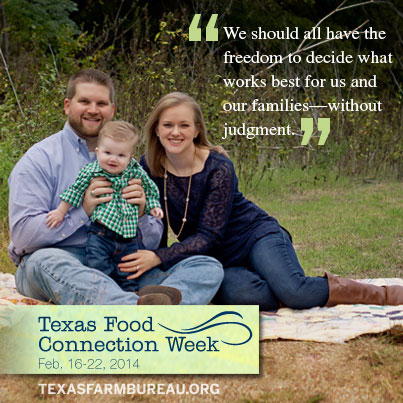

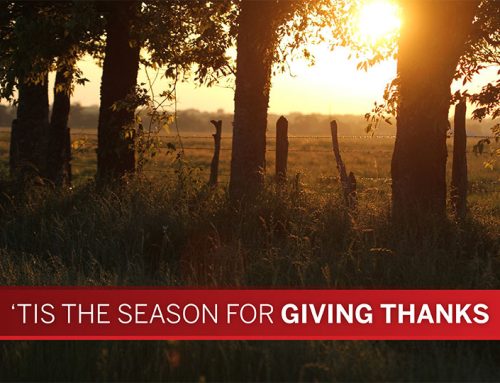
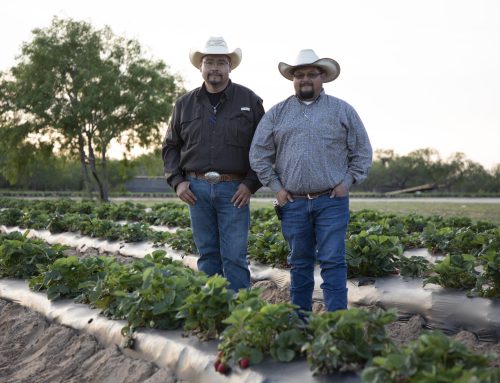
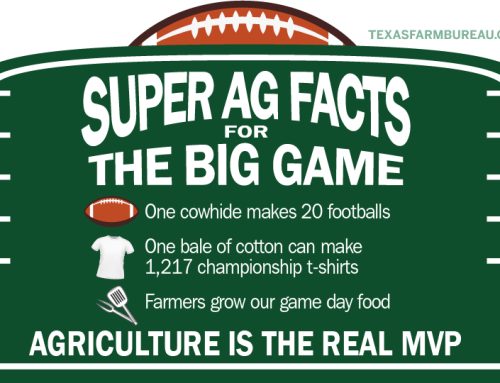
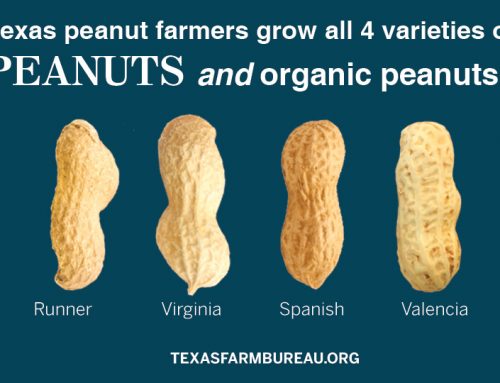




Leave A Comment